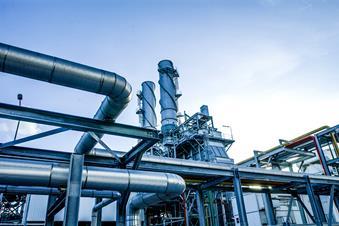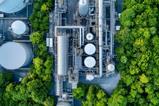Explore this page: What is the CCA scheme? | Whos is eligible? | How much you will be saving | How to apply
Opening of applications has been delayed, revised application window to be confirmed (Previously 1 May 2025 – 31 August 2025)
A new opportunity is opening for chemical businesses to significantly reduce their energy costs. From 1 January 2026, eligible sites in the chemical sector will be able to access relief of up to 92% on the Climate Change Levy (CCL), a tax applied to energy bills. This is part of the UK Government’s updated Climate Change Agreements (CCA) scheme.
If your company carries out eligible chemical activities, you may qualify. Here’s what you need to know.
What is the Climate Change Agreements (CCA) scheme?
Climate Change Agreements are voluntary commitments made between UK businesses and the Environment Agency to reduce energy use and carbon dioxide (CO₂) emissions.
In return for meeting energy efficiency targets, participating businesses receive a substantial discount on the Climate Change Levy (CCL), a tax added to electricity and fuel bills. The CCA scheme offers real financial savings for energy-intensive industries like chemicals.
A new phase of the scheme will run from 2026 to 2033.
You can read the full Government proposals here.
Who is eligible in the chemical sector?
Chemical sector eligibility is determined by whether your process is listed as a chemical activity in the Environmental Permitting Regulations: [1]
- Organic chemicals
- Inorganic chemicals
- Chemical fertiliser production
- Plant health products and biocides
- Pharmaceutical production
- Explosives production
- Manufacturing activities involving carbon disulphide or ammonia
- The storage of chemicals in bulk
Note! You do not need to meet the environmental permitting thresholds to be eligible. You can find more details about eligibility on CIABATA’s website.
What savings are available?
Annual savings for a chemical sector CCA participant
| Electricity | Use (MWh) | CCL rate from 1 April 2026 (£/MWh) | CCL Cost | CCA Saving(92% of CCL) |
|---|
|
Small
|
500
|
8.01
|
£ 4,005
|
£ 3,685
|
|
Medium
|
20,000
|
8.01
|
£ 160,200
|
£ 147,384
|
|
Large
|
70,000
|
8.01
|
£ 560,700
|
£ 515,844
|
|
Very large
|
150,000
|
8.01
|
£ 1,201,500
|
£ 1,105,380
|
| Gas | Use(MWh) | Rate from 1 April 2026 (£ /MWh) | CCL Cost | CCA Saving(89% of CCL) |
|---|
|
Small
|
3,000
|
8.01
|
£ 24,030
|
£ 21,387
|
|
Medium
|
30,000
|
8.01
|
£ 240,300
|
£ 213,867
|
|
Large
|
300,000
|
8.01
|
£ 2,403,000
|
£ 2,138,670
|
Who manages the chemical sector CCA?
The chemical sector’s participation in the scheme is managed by CIABATA, a dedicated subsidiary of the Chemical Industries Association (CIA). CIABATA is responsible for coordinating applications, supporting participants, and ensuring compliance with scheme requirements.
For full CIA members, CIABATA services are covered by their subscription. For non-members of CIA who wish to participate the choice is to become either a full member of CIA or a member of CIABATA only.
Find out more here.
How to apply
The application window for the new CCA scheme is expected to open summer 2025. To apply, you will need to:
- Confirm your site’s eligibility
- Provide data on energy usage
- Commit to energy efficiency improvements over the scheme period
Our dediated CIABATA website tells you everything you need to know.
For more details or if you have any questions, please contact us.
[1] Environmental Permitting Regulations (Schedule 1, Part 2 - Activities, Chapter 4 - The chemical industry)




